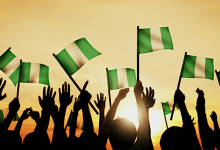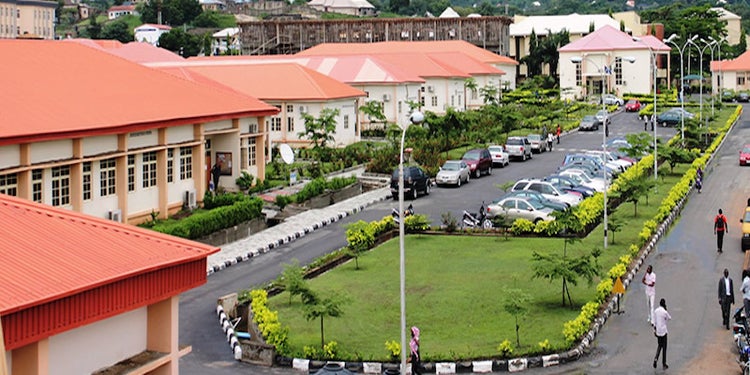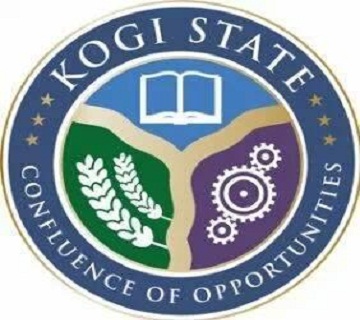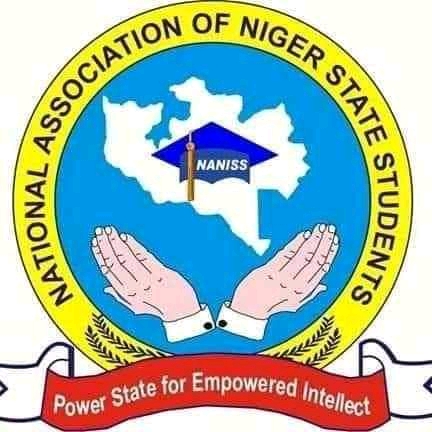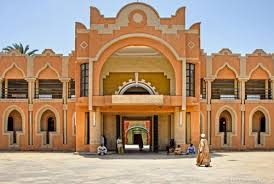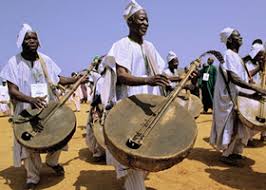List of all the Tribes, Ethnic Groups, Cultures and Languages in Nigeria and their Various States
Nigeria is a country located in West Africa and is known for its cultural diversity. The country has over 250 ethnic groups, each with its own unique culture, language, and traditions. This article aims to provide a comprehensive list of all the tribes, cultures, and languages in Nigeria.
Table of Contents
List of All The Major Tribes and Ethnic Groups in Nigeria
The term “tribe” refers to a group of people who share a common ancestry, language, and culture. Nigeria has over 250 ethnic groups, each with its own unique history, language, and cultural practices. However, there are some major tribes in Nigeria that make up a significant portion of the country’s population. These include:
- Hausa-Fulani: The Hausa-Fulani tribe is the largest ethnic group in Nigeria, accounting for over 30% of the population. They are predominantly Muslims and are known for their trading skills and weaving.
- Yoruba: The Yoruba tribe is the second-largest ethnic group in Nigeria, accounting for over 20% of the population. They are predominantly Christians and are known for their art, music, and literature.
- Igbo: The Igbo tribe is the third-largest ethnic group in Nigeria, accounting for over 18% of the population. They are predominantly Christians and are known for their entrepreneurial spirit and trade.
- Kanuri: The Kanuri tribe is located in northeastern Nigeria and is known for its Islamic culture.
- Tiv: The Tiv tribe is located in central Nigeria and is known for their farming and agricultural practices.
- Ijaw: The Ijaw tribe is located in the Niger Delta region of Nigeria and is known for its fishing and boat-building skills.
- Efik: The Efik tribe is located in southeastern Nigeria and is known for its food, clothing, and architecture.
- Nupe: The Nupe tribe is located in central Nigeria and is known for its horse-riding and equestrian skills.
- Edo: The Edo tribe is located in southern Nigeria and is known for its bronze casting, bead-making, and carving.
- Other tribes: There are over 240 other ethnic groups in Nigeria, each with its own unique culture and traditions.
Different Cultures in Nigeria
Each Nigerian tribe has its own unique culture and traditions, which include music, dance, clothing, food, and festivals. Nigerian culture is diverse, and each tribe has its own unique practices that are passed down from generation to generation.
Hausa-Fulani Culture: The Hausa-Fulani tribe is known for its hospitality, respect for elders, and traditional music. They also have a rich history of Islamic scholarship and education.
Yoruba Culture: The Yoruba tribe is known for its art, music, and literature. They are also known for their traditional clothing, which includes the buba, iro, and gele. The Yoruba are also known for their traditional festivals, such as the Olojo Festival and the Ojude Oba Festival.
Igbo Culture: The Igbo tribe is known for its entrepreneurial spirit and trade. They are also known for their traditional clothing, which includes the Isi-agu, Akwa-Ocha, and George. The Igbo are also known for their traditional festivals, such as the New Yam Festival and the Ofala Festival.
Kanuri Culture: The Kanuri tribe is known for its Islamic culture and traditions. They are also known for their traditional dance, which is called the Ganga Dance.
Tiv Culture: The Tiv tribe is known for its farming and agricultural practices. They are also known for their traditional dance, which is called the Swange Dance.
Ijaw Culture: The Ijaw tribe is known for its fishing and boat-building skills. They are also known for their traditional dance, which is called the Ijaw Dance.
Efik Culture: The Efik tribe is known for its food, clothing, and architecture. They are also known for their traditional dance, which is called the Ekombi Dance.
Nupe Culture: The Nupe tribe is known for its horse-riding and equestrian skills. They are also known for their traditional dance, which is called the Bata Dance.
Edo Culture: The Edo tribe is known for its bronze casting, bead-making, and carving. They are also known for their traditional dance, which is called the Bini Dance.
Other Cultural Practices in Nigeria: Nigeria is home to over 250 ethnic groups, each with its own unique culture and traditions. Other cultural practices in Nigeria include wrestling, storytelling, and traditional medicine.
Different Languages Spoken in Nigeria
Nigeria is home to over 500 languages, making it one of the most linguistically diverse countries in the world. However, there are some major languages spoken in Nigeria that are widely used and recognized. These include:
- Hausa: Hausa is the most widely spoken language in northern Nigeria and is the second most spoken language in the country.
- Yoruba: Yoruba is the most widely spoken language in southwestern Nigeria and is the third most spoken language in the country.
- Igbo: Igbo is the most widely spoken language in southeastern Nigeria and is the fourth most spoken language in the country.
- Kanuri: Kanuri is spoken in northeastern Nigeria and is the fifth most spoken language in the country.
- Tiv: Tiv is spoken in central Nigeria and is the sixth most spoken language in the country.
- Ijaw: Ijaw is spoken in the Niger Delta region of Nigeria and is the seventh most spoken language in the country.
- Efik: Efik is spoken in southeastern Nigeria and is the eighth most spoken language in the country.
- Nupe: Nupe is spoken in central Nigeria and is the ninth most spoken language in the country.
- Edo: Edo is spoken in southern Nigeria and is the tenth most spoken language in the country.
- Other Languages: There are over 490 other languages spoken in Nigeria, each with its own unique dialects and variations.
List of all the Tribes, Ethnic Groups, Cultures, and Languages in Nigeria and their Various States
Below is a list of all the tribes in Nigeria.
1. Abayon Cross River State
2. Abua (Odual) Rivers State
3. Achipa (Achipawa) Kebbi State
4. Adim Cross River State
5. Adun Cross River State
6. Affade Yobe State
7. Afizere Plateau State
8. Afo Plateau State
9. Agbo Cross River State
10. Akaju-Ndem (Akajuk) Cross River State
11. Akweya-Yachi Benue State
12. Alago (Arago) Plateau State
13. Amo Plateau State
14. Anaguta Plateau State
15. Anang Akwa Ibom State
16. Andoni Akwa Ibom State, Rivers State
17. Angas Bauchi State, Plateau State
18. Ankwei Plateau State
19. Anyima Cross River State
20. Attakar (ataka) Kaduna State
21. Auyoka (Sub-Hausa) Jigawa State
22. Awori Lagos State, Ogun State
23. Ayu Kaduna State
24. Babur (Pabir)/Bura Adamawa State, Borno State, Taraba State, Yobe State
25. Bachama Adamawa State
26. Bachere Cross River State
27. Bada Plateau State
28. Bade Yobe State
29. Baggara Arabs Borno State
30. Bahumono Cross River State
31. Bakulung Taraba State
32. Bali Taraba State
33. Bambora (Bambarawa) Bauchi State
34. Bambuko Taraba State
35. Banda (Bandawa) Taraba State
36. Banka (Bankalawa) Bauchi State
37. Banso (Panso) Adamawa State
38. Bara (Barawa) Bauchi State
39. Barke Bauchi State
40. Baruba (Barba) Niger State
41. Bashiri (Bashirawa) Plateau State
42. Bassa Kaduna State, Kogi State, Niger State, Plateau State
43. Batta Adamawa State
44. Baushi Niger State
45. Baya Adamawa State
46. Bekwarra Cross River
47. Bele (Buli, Belewa) Bauchi State
48. Betso (Bete) Taraba State
49. Bette Cross River State
50. Bilei Adamawa State
51. Bille Adamawa State
52. Bina (Binawa) Kaduna State
53. Bini (Edo) Edo State
54. Birom Plateau State
55. Bobua Taraba State
56. Boki (Nki) Cross River State
57. Bokkos Plateau State
58. Boko (Bussawa, Bargawa) Niger State
59. Bole (Bolewa) Bauchi State, Yobe State
60. Botlere Adamawa State
61. Boma (Bomawa, Burmano) Bauchi State
62. Bomboro Bauchi State
63. Buduma Borno State,
64. Buji Plateau State
65. Buli Bauchi State
66. Bunu Kogi State
67. Bura/Babur (Pabir) Adamawa State, Borno State
68. Burak Bauchi State
69. Burma (Burmawa) Plateau State
70. Buru Yobe State
71. Buta (Butawa) Bauchi State
72. Bwall Plateau State
73. Bwatiye Adamawa State
74. Bwazza Adamawa State
75. Challa Plateau State
76. Chama (Chamawa Fitilai) Bauchi State
77. Chamba Taraba State
78. Chamo Bauchi State
79. Chibok (Kibaku) Borno State, Yobe State
80. Chinine Borno State
81. Chip Plateau State
82. Chokobo Plateau State
83. Chukkol Taraba State
84. Daba Adamawa State
85. Dadiya Bauchi State
86. Daka Adamawa State
87. Dakarkari Kebbi State, Niger State
88. Danda (Dandawa) Kebbi State
89. Dangsa Taraba State
90. Daza (Dere, Derewa) Bauchi State
91. Degema Rivers State
92. Deno (Denawa) Bauchi State
93. Dghwede Borno State
94. Diba Taraba State
95. Doemak (Dumuk) Plateau State
96. Ouguri Bauchi State
97. Duka (Dukawa) Kebbi State
98. Duma (Dumawa) Bauchi State
99. Ebana (Ebani) Rivers State
100. Ebira Edo State, Kogi State, Ondo State
101. Ebu Edo State, Kogi State
102. Ebu Edo State, Kogi State
103. Efik Cross River State
104. Egbema Rivers State
105. Egede (Igedde) Benue State
106. Eggon Plateau State
107. Egun (Gu) Lagos State, Ogun State
108. Ejagham Cross River State
109. Ekajuk Cross River State
110. Eket Akwa Ibom
111. Ekoi Cross River State
112. Ekpeye Rivers State
113. Engenni (Ngene) Rivers State
114. Epie Bayelsa State
115. Esan (Ishan) Edo State
116. Etche Rivers State
117. Etolu (Etilo) Benue State
118. Etsako Edo State
119. Etung Cross River State
120. Etuno Edo State
121. Palli Adamawa State
122. Fulani (Fulbe) Adamawa State, Bauchi State, Borno State, Jigawa State, Kaduna StateKano State, Katsina State, Kebbi State, Kwara State, Niger State, Sokoto State, Taraba State, Yobe State
123. Fyam (Fyem) Plateau State
124. Fyer(Fer) Plateau State
125. Ga’anda Adamawa State
126. Gade Niger State
127. Galambi Bauchi State
128. Gamergu-Mulgwa Borno State
129. Qanawuri Plateau State
130. Gavako Borno State
131. Gbedde Kogi State
132. Gengle Taraba State
133. Geji Bauchi State
134. Gera (Gere, Gerawa) Bauchi State
135. Geruma (Gerumawa) Plateau State
136. Geruma (Gerumawa) Bauchi State
137. Gingwak Bauchi State
138. Gira Adamawa State
139. Gizigz Adamawa State
140. Goemai Plateau State
141. Gokana (Kana) Rivers State
142. Gombi Adamawa State
143. Gornun (Gmun) Taraba State
144. Gonia Taraba State
145. Gubi (Gubawa) Bauchi State
146. Gude Adamawa State
147. Gudu Adamawa State
148. Gure Kaduna State
149. Gurmana Niger State
150. Gururntum Bauchi State
151. Gusu Plateau State
152. Gwa (Gurawa) Adamawa State
153. Gwamba Adamawa State
154. Gwandara Kaduna State, Niger State, Plateau State
155. Gwari (Gbagi) Kaduna State, Kogi State, Federal Capital Territory, Nasarawa State, Niger State, Plateau State
156. Gwong (Kagoma) Kaduna State
157. Gwom Taraba State
158. Gwoza (Waha) Borno State
159. Gyem Bauchi State
160. Ham (Hyam, Jaba, Jabba) Kaduna State
161. Hausa Bauchi State, Borno State, Jigawa State, Kaduna State, Kano State, Katsina State, Kebbi State, Niger State, Sokoto State, Taraba State
162. Holma Adamawa State
163. Hona Adamawa State
164. Ibeno Akwa Ibom State
165. Ibibio Akwa Ibom State
166. Ichen Adamawa State
167. Idoma Benue State, Cross River State, Kogi State, Nassarawa State
168. Igala Anambra State , Edo State , Enugu State, Kogi State
169. Igbo Abia State, Anambra State, Delta State, Ebonyi State, Enugu State, Imo State, Rivers State
170. Ijumu Kogi State
171. Ika Delta State
172. Ikom Cross River State
173. Ikwerre Rivers State
174. Irigwe Plateau State
175. Isoko Delta State, Bayelsa State
176. Isekiri (Itsekiri) Delta State
177. Iyala (Iyalla) Cross River State
178. Izon (Ijaw) Bayelsa State, Delta State, Edo State, Ondo State, Rivers State
179. Jahuna (Jahunawa) Taraba State
180. Jaku Bauchi State
181. Jara (Jaar Jarawa Jarawa-Dutse) Bauchi State
182. Jere (Jare, Jera, Jera, Jerawa) Bauchi State, Plateau State
183 Taraba State
184. Jibu Adamawa State
185. Jidda-APlateau State
186. Jimbin (Jimbinawa) Bauchi State
187. Jirai Adamawa State
188. Jonjo (Jenjo) Taraba State
189. Jukun Bauchi State, Benue State, Plateau State, Taraba State
190. Kaba(Kabawa) Taraba State
191. Kadara Kaduna State, Niger State
192. Kafanchan Kaduna State
193. Kagoro Kaduna State
194. Kaje (Kache) Kaduna State
195. Kajuru (Kajurawa) Kaduna State
196. Kaka Adamawa State
197. Kamaku (Karnukawa) Kaduna State, Kebbi State, Niger State
198. Kambari Kebbi State, Niger State
199. Kambu Adamawa State
200. Kanakuru (Dera) Adamawa State, Borno State
201. Kanembu Borno State
202. Kanikon Kaduna State
203. Kantana Plateau State
204. Kanuri Adamawa State, Borno State, Taraba State, Yobe State
205. Karekare (Karaikarai) Bauchi State, Yobe State
206. Karimjo Taraba State
207. Kariya Bauchi State
208. Katab (Kataf) Kaduna State
209. Kenern (Koenoem) Plateau State
210. Kenton Taraba State
211. Kiballo (Kiwollo) Kaduna State
212. Kilba Adamawa State
213. Kirfi (Kirfawa) Bauchi State
214. Koma Taraba State
215. Kona Taraba State
216. Koro (Kwaro) Kaduna State, Niger State
217. Kubi (Kubawa) Bauchi State
218. Kudachano (Kudawa) Bauchi State
219. Kugama Taraba State
220. Kulere (Kaler) Plateau State
221. Kunini Taraba State
222. Kurama Kaduna State
223. Kurdul Adamawa State
224. Kushi Bauchi State
225. Kuteb Taraba State
226. Kutin Taraba State
227. Kwalla Plateau State
228. Kwami (Kwom) Bauchi State
229. Kwanchi Taraba State
230. Kadung Bauchi State, Plateau State
231. Kwaro Plateau State
232. Kwato Plateau State
233. Kyenga (Kengawa) Kebbi State
234. Laaru (Larawa) Niger State
235. Lakka Adamawa State
236. Lala Adamawa State
237. Lama Taraba State
238. Lamja Taraba State
239. Lau Taraba State
240. Limono Bauchi State, Plateau State
241. Lopa (Lupa, Lopawa) Niger State
242. Longuda (Lunguda) Adamawa State, Bauchi State
243. Mabo Plateau State
244. Mada Kaduna State, Plateau State
245. Mama Plateau State
246. Mambilla Adamawa State
247. Manchok Kaduna State
248. Mandara (Wandala) Borno State
249. Manga (Mangawa) Yobe State
250. Margi (Marghi) Adamawa State, Borno State
251. Matakarn Adamawa State
252. Mbembe Cross River State, Enugu State
253. Mbol Adamawa State
254. Mbube Cross River State
255. Mbula Adamawa State
256. Mbum Taraba State
257. Memyang (Meryan) Plateau State
258. Miango Plateau State
259. Miligili (Migili) Plateau State
260. Miya (Miyawa) Bauchi State
261. Mobber Borno State
262. Montol Plateau State
263. Moruwa (Moro’a, Morwa) Kaduna State
264. Muchaila Adamawa State
265. Mumuye Taraba State
266. Mundang Adamawa State
267. Munga (Lelau) Taraba State
268. Munga (Mupang) Plateau State
269. Mupun Plateau State
270. Mushere Plateau State
271. Mwahavul (Mwaghavul) Plateau State
272. Ndoro Taraba State
273. Ngas Plateau State
274. Ngizim Yobe State
275. Ngweshe (Ndhang.Ngoshe-Ndhang) Adamawa State, Borno State
276. Nyam Taraba State
277. Ningi (Ningawa) Bauchi State
278. Ninzam (Ninzo) Kaduna State, Plateau State
279. Njayi Adamawa State
280. Nkim Cross River State
281. Nkum Cross River State
282. Nokere (Nakere) Plateau State
283. Nunku Kaduna State, Plateau State
284. Nupe Kogi State, Kwara State, Niger State
285. Nyandang Taraba State
286. Ododop Cross River
287. Ogori Kogi State
288. Ogoni Akwa Ibom State, Rivers State
289. Ogba Rivers State
290. Okobo (Okkobor) Akwa Ibom State
291. Okpamheri Edo State
292. Okpe Edo State
293. Olulumo Delta State
294. Olukumi Delta State
295. Oron Akwa Ibom State
296. Owan Edo State
297. Owe Kogi State
298. Oworo Kogi State
299. Pa’a (Pa’awa Afawa) Bauchi State
300. Pai Plateau State
301. Panyam Taraba State
302. Pero Bauchi State
303. Pire Adamawa State
304. Pkanzom Taraba State
305. Poll Taraba State
306. Polchi Habe Bauchi State
307. Pongo (Pongu) Niger State
308. Potopo Taraba State
309. Pyapun (Piapung) Plateau State
310. Qua Cross River State
311. Rebina (Rebinawa) Bauchi State
312. Reshe Kebbi State, Niger State
313. Rindire (Rendre) Plateau State
314. Rishuwa Kaduna State
315. Ron Plateau State
316. Rubu Niger State
317. Rukuba Plateau State
318. Rumada Kaduna State
319. Rumaya Kaduna State
320. Sakbe Taraba State
321. Sanga Bauchi State
322. Sate Taraba State
323. Saya (Sayawa Za’ar) Bauchi State, Kaduna State, Plateau State
324. Segidi (Sigidawa) Bauchi State
325. Shanga (Shangawa) Kebbi State
326. Shangawa (ShanKadunagau) Plateau State
327. Shan-Shan Plateau State
328. Shira (Shira) Bauchi State
329. Shomo Taraba State
330. Shuwa Adamawa State, Borno State, Kaduna State, Yobe State
331. Sikdi Plateau State
332. Siri (Sirawa) Bauchi State
333. Srubu (Surubu) Kaduna State
334. Sukur Adamawa State
335. Sura Plateau State
336. Tangale Gombe State
337. Tarok Plateau State, Taraba State
338. Teme Adamawa State
339. Tera (Terawa) Bauchi State, Borno State
340. Teshena (Teshenawa) Kano State
341. Tigon Taraba State
342. Tikar Taraba State
343. Tiv Benue State, Plateau State, Taraba State
344. Tula Gombe State
345. Tur Adamawa State
346. Ubbo Adamawa State
347. Ufia Benue State
348. Ukelle Cross River State
349. Ukwani (Kwale) Delta State
350. Uncinda Kaduna State, Kebbi State, Niger State ,
351. Uneme (Ineme) Edo State
352. Ura (Ula) Niger State
353. Urhobo Delta State
354. Utonkong Benue State
355. Uyanga Cross River State
356. Vemgo Adamawa State
357. Verre Adamawa State
358. Vommi Taraba State
359. Wagga Adamawa State
360. Waja Bauchi State
361. Waka Taraba State
362. Warja (Warja) Bauchi State
363. Warji Bauchi State
364. Wula Adamawa State
365. Wurbo Adamawa State
366. Wurkun Taraba State
367. Yache Cross River State
368. Yagba Kogi State
369. Yakurr (Yako) Cross River State
370. Yalla Benue State
371. Yandang Adamawa State, Taraba State
372. Yergan (Yergum) Plateau State
373. Yoruba Ekiti State, Kogi State, Kwara State, Lagos State, Ogun State, Ondo State, Osun State, Oyo State
374. Yott Taraba State
375. Yumu Niger State
376. Yungur Adamawa State
377. Yuom Plateau State
378. Zabara Niger State
379. Zaranda Bauchi State
380. Zarma (Zarmawa) Kebbi State
381. Zayam (Zeam) Bauchi State
382. Zul (Zulawa) Bauchi State
Do you know any tribe that is not on this list?
If you know of a tribe not mentioned here, please comment and proudly represent your tribe.
We are one Nigeria, and our diversity is the beauty that can help us build a great nation.❤️
Frequently asked questions (FAQs) about the tribes, cultures, and languages in Nigeria
What is the most popular tribe in Nigeria?
The Hausa tribe is considered the most popular tribe in Nigeria, with a population of over 70 million people in Nigeria and other African countries.
How many tribes are in Nigeria?
There are over 250 ethnic groups in Nigeria, each with its own unique culture, traditions, and practices.
What is the most widely spoken language in Nigeria?
Hausa is the most widely spoken language in northern Nigeria and is the second most spoken language in the country, after English.
What are the major cultural festivals in Nigeria?
Some of the major cultural festivals in Nigeria include the Eyo Festival, the Durbar Festival, the Osun-Osogbo Festival, the Calabar Carnival, and the New Yam Festival.
What is the significance of traditional Nigerian attire?
Traditional Nigerian attire is a symbol of cultural identity and pride. It is often worn during traditional ceremonies and festivals to showcase the rich cultural heritage of Nigeria.
What is the importance of traditional music and dance in Nigerian culture?
Traditional music and dance are an integral part of Nigerian culture. They are used to express emotions, tell stories, and preserve cultural heritage. They are also a form of entertainment and socialization.
What is the role of traditional rulers in Nigerian culture?
Traditional rulers in Nigerian culture are highly respected and play a vital role in maintaining law and order, settling disputes, and preserving cultural heritage. They are often consulted on important matters affecting their communities.
What is the traditional cuisine of Nigeria?
The traditional cuisine of Nigeria includes dishes such as jollof rice, egusi soup, pounded yam, and suya (spicy grilled meat).
What are some traditional art forms in Nigeria?
Traditional art forms in Nigeria include bronze casting, bead-making, weaving, and carving. These art forms are used to create intricate designs and patterns that are often used in clothing, jewelry, and home decor.
What is the significance of Nigerian traditional medicine?
Nigerian traditional medicine is often used as an alternative to Western medicine. It is believed to have healing properties and is often used to treat common ailments and diseases. Traditional medicine is also an important part of Nigerian culture and is often passed down from generation to generation.
Conclusion
Nigeria’s cultural diversity is one of the country’s greatest assets. With over 250 ethnic groups and 500 languages, Nigeria is a melting pot of cultures, traditions, and practices. Each Nigerian tribe has its own unique culture and traditions, which include music, dance, clothing, food, and festivals. Nigerian culture is diverse, and each tribe has its own unique practices that are passed down from generation to generation. The languages spoken in Nigeria are also diverse, with over 500 languages spoken in the country. This article aimed to provide a comprehensive list of all the tribes, cultures, and languages in Nigeria, highlighting the importance and beauty of Nigeria’s cultural diversity.
